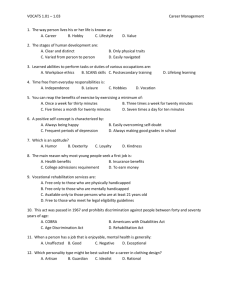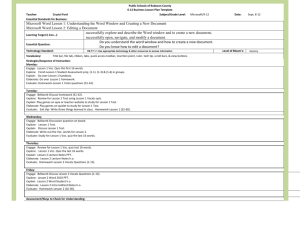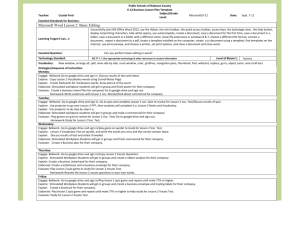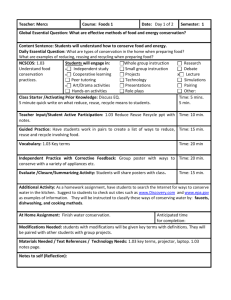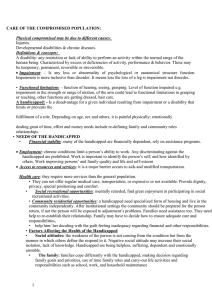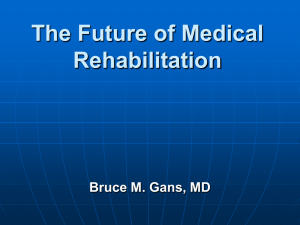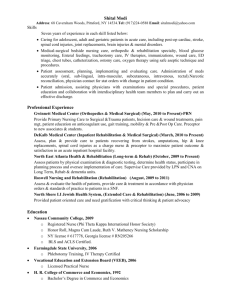VOCATS 1.03 Career Management 1. The way a person lives his or
advertisement
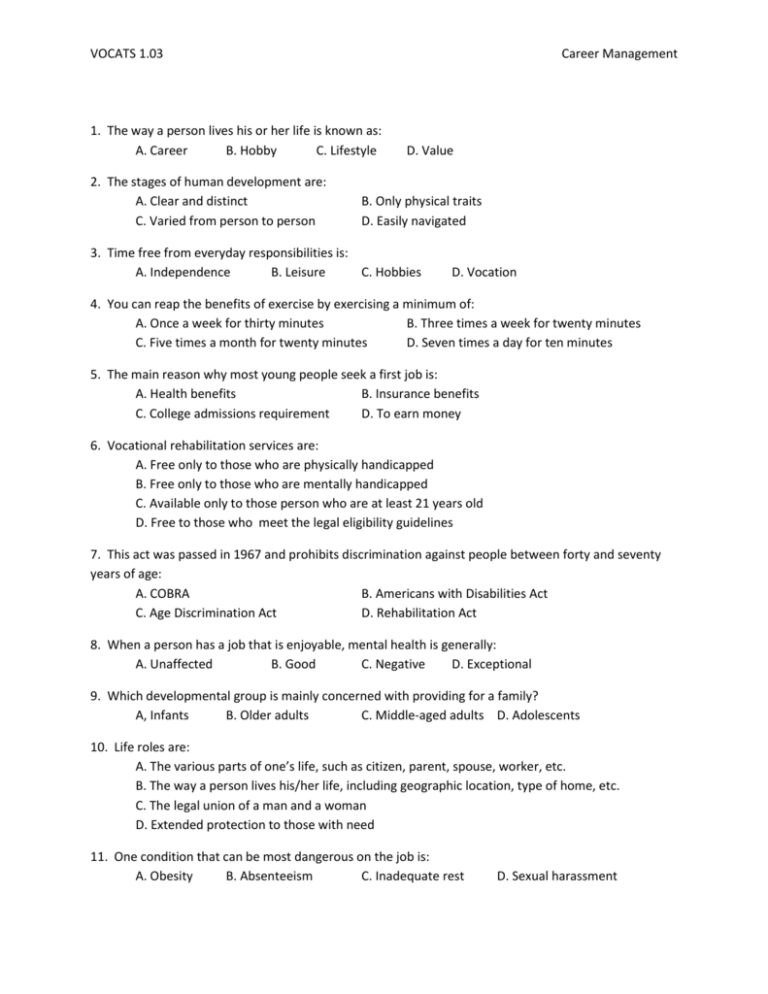
VOCATS 1.03 Career Management 1. The way a person lives his or her life is known as: A. Career B. Hobby C. Lifestyle 2. The stages of human development are: A. Clear and distinct C. Varied from person to person D. Value B. Only physical traits D. Easily navigated 3. Time free from everyday responsibilities is: A. Independence B. Leisure C. Hobbies D. Vocation 4. You can reap the benefits of exercise by exercising a minimum of: A. Once a week for thirty minutes B. Three times a week for twenty minutes C. Five times a month for twenty minutes D. Seven times a day for ten minutes 5. The main reason why most young people seek a first job is: A. Health benefits B. Insurance benefits C. College admissions requirement D. To earn money 6. Vocational rehabilitation services are: A. Free only to those who are physically handicapped B. Free only to those who are mentally handicapped C. Available only to those person who are at least 21 years old D. Free to those who meet the legal eligibility guidelines 7. This act was passed in 1967 and prohibits discrimination against people between forty and seventy years of age: A. COBRA B. Americans with Disabilities Act C. Age Discrimination Act D. Rehabilitation Act 8. When a person has a job that is enjoyable, mental health is generally: A. Unaffected B. Good C. Negative D. Exceptional 9. Which developmental group is mainly concerned with providing for a family? A, Infants B. Older adults C. Middle-aged adults D. Adolescents 10. Life roles are: A. The various parts of one’s life, such as citizen, parent, spouse, worker, etc. B. The way a person lives his/her life, including geographic location, type of home, etc. C. The legal union of a man and a woman D. Extended protection to those with need 11. One condition that can be most dangerous on the job is: A. Obesity B. Absenteeism C. Inadequate rest D. Sexual harassment VOCATS 1.03 Career Management 12. A law that guarantees financial assistance to workers injured on the job is: A. Medicare/Medicaid B. Rehabilitation Act of 1973 C. Workers’ Compensation 13. Getting inadequate rest is related to: A. Improved productivity C. Increased accidents on the job D. COBRA B. Feeling good D. Lower number of workdays missed 14. Changes that can be planned for are: A. Random B. Sequential C. Unexpected D. Predictable 15. According to medical experts, a major cause of stress is: A. Change B. Money C. Headaches D. Anger 16. The Family Medical Leave Act was designed to cover: A. Females only B. Males only C. Children only D. Males and females 17. Putting important items that need to be done first is referred to as: A. Criticizing B. Complaining C. Prioritizing D. Authorizing 18. Which group is most influenced by peer pressure? A. Infants B. Teenagers C. Adults D. Senior citizens 19. Being healthy can help a person’s career by: A. Giving the energy needed to perform the job B. Preventing being alert C. Promoting conflict with coworkers D. Encouraging absenteeism 20. Which contributes to unsafe working condition? A. Patience B. Consideration C. Laziness D. Punctuality 21. Workplace safety is primarily the responsibility of the: A. Employers B. Government C. Individual employee 22. When laid off from work, a person: A. Is required to receive severance pay C. Cannot look for another job 23. Which is a job? A. Newspaper carrier B. Editor 24. Physical and mental health can affect: A. Job performance B. Car selection D. Safety committee B. Is forced to retire and take benefits D. May qualify for unemployment insurance C. Graphic artist D. Teacher C. Location of residence D. Gasoline price 25. A group of people who are caring for both their parents and their children are called: A. Generation X B. Generation Y C. The sandwich generation D. The greatest generation VOCATS 1.03 Career Management 26. According to Erikson, attitudes toward work and personal responsibility are first formed as a/an: A. Infant B. Preschooler C. Adolescent D. Adult 27. During leisure time, a person might be involved in which activity: A. Business travel B. Conference call C. Favorite hobby D. On-the-job training 28. A natural reaction to the demands of daily life is: A. Mediation B. Fighting D. Depression C. Stress
